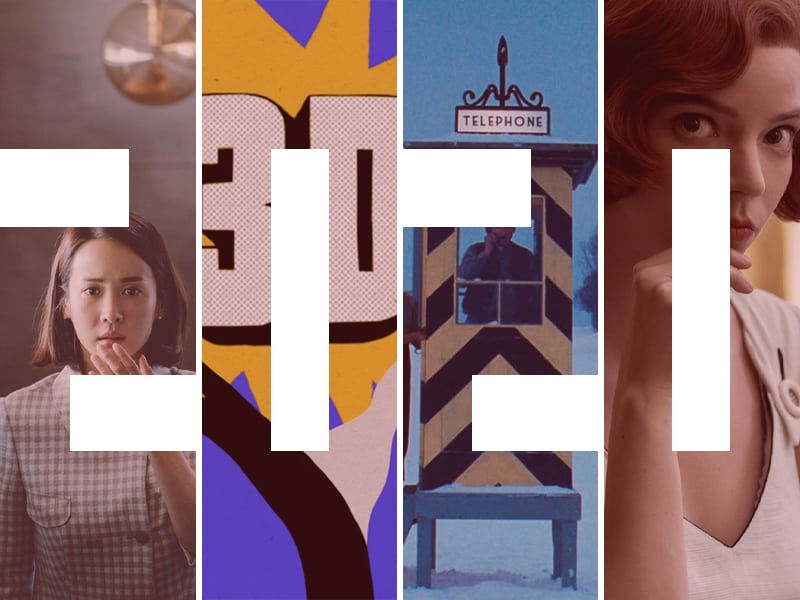
This article is part of our 2020 Rewind. Follow along as we explore the best and most interesting movies, shows, performances, and more from this very strange year. In this entry, we explore the best video essays of 2020.
In 2020, distraction was a gift. Thankfully, video essays provided with sharp wits and even sharper edits. Some unpacked new sides of well-loved classics. Others enticed us to hit play on new discoveries for the first time. And others helped us find the words for how it has been to seek comfort in passive entertainment during a year that, for most of us, has felt unbearably passive.
In 2020, I had the privilege of hosting The Queue, a column dedicated to highlighting short-form video content about films, television, and the craft of visual storytelling. These twenty essays are some of my favorites. And I want to sincerely thank all the essayists for their hard work in a year when hard work wasn’t easy. Thanks for keeping us educated and entertained. Hope to see you in my feed again in 2021.
“Déjà Vu: Portrait of a Lady on Fire”
Sneak Peek:
The love story at the center of Céline Sciamma‘s Portrait of a Lady On Fire unfurls through texture, composition, body language, and color. It is an appropriately painterly film that ultimately can’t help but rhyme and resonate with its peers. So, if you’ve ever found yourself thinking, “Huh, that shot reminds me of another film, but I can’t quite describe why,” this will prove a satisfying watch.
Essay By:
Paris-based actress and videographer Candice Drouet is an old favorite around these parts. She currently collaborates with the French television channel Canal+. You can follow Drouet on Instagram here. On Twitter here. And you can check out her back catalog of videos on Vimeo here.
“Jaws: When Seeing isn’t Believing”
Sneak Peek:
Moments of unabashed horror have an uncanny way of sneaking into Steven Spielberg‘s films. But nowhere else does he muddy the genre waters quite like Jaws. What I love about this video is that rather than play taxonomic ping pong, the essayist gets right to the meat of the matter. Namely: which horror genre traditions does Jaws participate in, and which does it challenge?
Essay By:
This video is by Grace Lee. We’ve covered their work on FSR before and with good reason: they’re an expert at tackling dense and challenging content with a keen eye, an elegant flourish, and an overwhelming cultural fluency. You can follow Lee on their YouTube channel What’s So Great About That? here. You can follow Lee on Twitter here. And you can support Lee on Patreon here.
“The Life and Death of 3D”
Sneak Peek:
This is one of those essays that does a great job clarifying something you’ve long suspected with crunchy, clearly articulated facts. You might have a foggy sense of 3D’s fad status or its repeated attempts to win the hearts and eyes of audiences. But having the whole recurring nightmare explained is satisfying (and informative!).
Essay By:
This video essay was put together by the Texas-based Royal Ocean Film Society, which is run by Andrew Saladino. You can browse their back catalog of videos on their Vimeo account here. If Vimeo isn’t your speed, you can give them a follow on YouTube here.
“Crayon Shin-chan And Nostalgia“
Sneak Peek:
First off, you don’t need to be familiar with Crayon Shin-chan to enjoy this one. This is an essay created from a place of nostalgia that is itself about the limitations of nostalgia. I think many of us have looked for comfort in old, familiar films in response to the pandemic. And what I like so much about this essay is that it clearly communicates the warmth of returning to a beloved piece of art as well as the importance of accepting the difficult truth that change is inevitable.
Essay By:
This video is by Accented Cinema, a Canadian-based YouTube video essay series with a focus on foreign, specifically East Asian, cinema. You can subscribe to Accented Cinema for bi-weekly uploads on YouTube. You can also follow them on Twitter.
“Understanding Nietzsche’s Connection to The Turin Horse”
Sneak Peek:
The Turin Horse is a film based on the event that supposedly caused the mental breakdown of the philosopher Friedrich Nietzsche. I hope that sentence hints at why a video essay might be helpful here. As legend has it, the philosopher’s disturbance (which in turn led to his death) took place in Turin, where he collapsed after witnessing a man beating his horse. Béla Tarr‘s film is the story of what happened to that horse. But it is also about the belief that complacency is destructive, a philosophical concept best described by who else but Nietzsche himself.
Essay By:
The Movement Image is a film journal edited by Grant Kerber and Paul Ebenkamp. Their companion YouTube channel contains videos based on content from the journal and analogous projects. You can subscribe to The Movement Image on YouTube here. You can check out the journal’s website here.

Related Topics: 2020 Rewind, video essay

